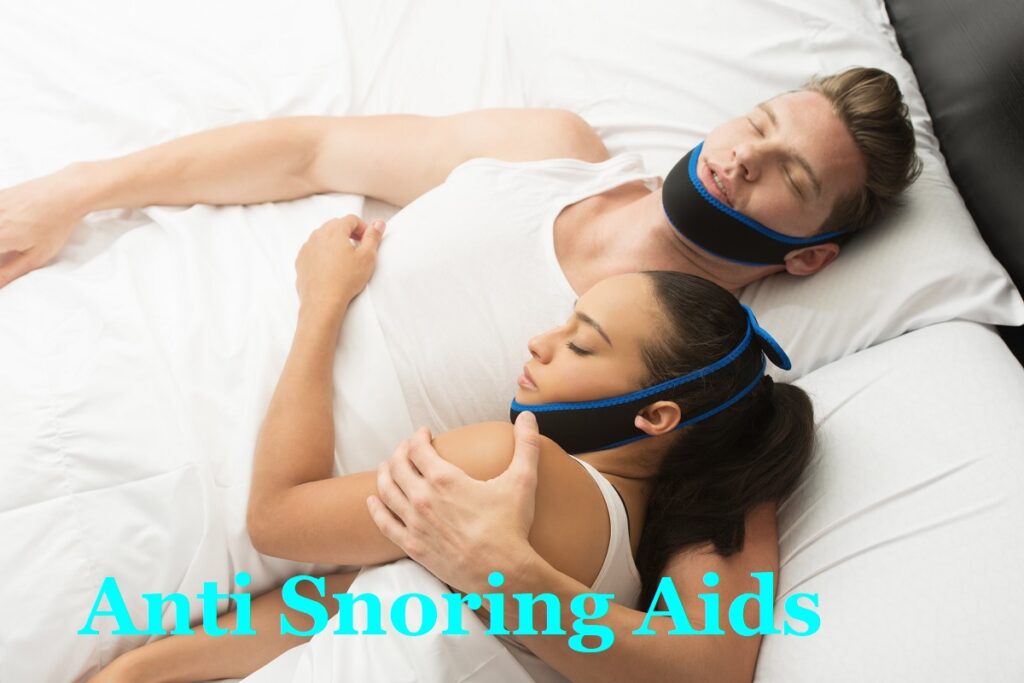
Anti Snoring Aids – When you are sleepy, intoxicated, or smoking, you tend to snore uncontrollably. It often occurs when your tongue moves back into your airway, which makes it difficult to breathe and causes grating noises. The anti-snoring aid tapes are among the several snoring remedies that are available and are highly well-liked. We’ll respond if you know what these tapes are.
What Do Anti Snoring Aids Tape Actually Do?
The breathing issues caused by sleep apnea cannot be helped by Anti Snoring Aids tapes; they may help to lessen snoring. Additionally, studies have indicated that nasal strips might lessen daytime sleepiness and dry mouth.
These things are available from pharmacies; place them over your nose each night before you go to bed.
Anti Snoring Aids tapes, a type of nasal dilator, pull the nostrils open from the outside in order to increase the quantity of air that may enter the nose. Snoring strips come in a variety of brands, but they all work the same way.
Anti Snoring
The Anti Snoring Aids tapes are little, pliable bands of fabric worn on the outside of the nose. The bottom of the snoring strips has an adhesive material that enables it to stick to the skin. One strip, placed in the center of the nose, covers the flare of each nostril.
Snore strips have the ability to widen the nasal canal by tugging on the sides of the nose. Because the nasal channel is broader, there is less air turbulence and more airflow through the nose, which reduces snoring.
Now the issue is, do these snoring cassettes truly work? We’re here to address it, after all.
1. Do Anti Snoring Aid Tapes Actually Work?
Best Snoring Aids – Snoring strips are one of the many options offered to those who snore. They have been in existence for a while. But little research has been done on their efficacy.
Snoring occurs when you breathe loudly as you sleep, which can make it challenging for both you and your partner to get a good night’s rest. Snoring occurs when the airway is closed.
The obstruction may be located in the nose or the back of the throat.
When there is an obstruction or limitation, the airflow becomes turbulent because less air can reach the nose or throat. Because of this, the uvula and other tissues in the back of the throat might vibrate, resulting in the snoring sound.
2. The Success Rate of Anti-Snoring Aid Tapes
How effective snoring strips are may depend on the nature and extent of the obstruction. While the strips may aid in some circumstances by raising the side of the nose, they are not always beneficial. They could, for instance, come off at strange hours of the night.
Additionally, they don’t address underlying sleep issues like sleep apnea, which has snoring as a symptom. But when they work, they provide a rapid and non-invasive way to reduce snoring.
a. Anti Snoring – Skin irritation:
A plus of snoring strips is that they don’t contain any drugs. They are conveniently available too without a prescription. Snore strips often have little to no harmful effects. Skin irritation is the only potential side effect, however, it is frequently insignificant.
The glue on the bottom of the strip may harm the skin if it is removed. However, taking your time to remove the strip might lessen any discomfort.
Studies on the effectiveness of snoring strips have shown mixed results. Then, are they value giving a shot? Maybe. Snoring strips won’t make you sleep better, but in certain cases, they can make you snore less. Given that they are frequently inexpensive and have few side effects, it could be worthwhile to try.
Let us explain why you should purchase snoring cassettes if you’re still unsure.
Negative Consequences of Snoring:
Snoring may have an effect on both men and women of different ages. In children, snoring is a regular phenomenon. But it gets more common as we age because the tissues and muscles in the back of the neck loosen up. It is difficult to determine the percentages of people who genuinely snore because not everyone does. However, research published in The Journal of Clinical Sleep Medicine found that up to 25% of women and up to 45% of males snore often.
Snoring may occur seldom or every night. Your partner could have trouble falling asleep because of how loud and disruptive your snoring is. Additionally, it can result in less restful sleep for you.
a. Anti Snoring – Structural Problems:
Snoring may be caused by nasal polyps and other structural problems that may affect breathing. Snoring is another indication of sleep apnea, which causes brief pauses in breathing while you sleep. Click here to take a one-minute online quiz to find out your risk for obstructive sleep apnea. Sometimes allergies or a cold that produces a clogged nose might induce snoring.
Snoring needs to be addressed in order to get the required quantity of sleep because they feel it would be invasive or uncomfortable, or because they are unclear about their options, some people may be reluctant to seek therapy for their snoring.
One possible snoring treatment approach is to purchase anti-snoring strips.
Anti Snoring Aids – Snoring is a very involuntary action and even if one wants to stop snoring, it is not easily possible. Snoring has many reasons, and if you hit the category of any of these reasons then you really should get an Anti Snoring Aids tape.
Reasons For Snoring
1. Your Mouth’s Structure:
A low, thick soft palate might make your airway smaller. The additional tissues in the back of the throats of overweight people may cause their airways to become more restricted. The triangle tissue that hangs from the soft palate (the uvula), which can be enlarged, can also block airflow and enhance the vibration.
2. Alcoholic Beverages:
Additionally, drinking too much alcohol right before bed might cause snoring. Alcohol weakens your body’s natural defenses against airway congestion by relaxing your throat muscles.
3. Nasal Issues:
Your snoring may be caused by persistent nasal congestion or a deviated nasal septum, a bent wall between your nostrils.
4. Lack of Sleep:
Lack of sleep might cause the throat to relax even more.
5. Sleeping Posture:
Since gravity’s influence on the throat causes the airway to become more constricted, snoring is usually more frequent and loudest when lying on the back.




